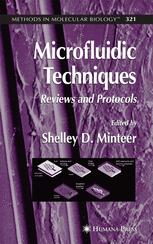

Most ebook files are in PDF format, so you can easily read them using various software such as Foxit Reader or directly on the Google Chrome browser.
Some ebook files are released by publishers in other formats such as .awz, .mobi, .epub, .fb2, etc. You may need to install specific software to read these formats on mobile/PC, such as Calibre.
Please read the tutorial at this link: https://ebookbell.com/faq
We offer FREE conversion to the popular formats you request; however, this may take some time. Therefore, right after payment, please email us, and we will try to provide the service as quickly as possible.
For some exceptional file formats or broken links (if any), please refrain from opening any disputes. Instead, email us first, and we will try to assist within a maximum of 6 hours.
EbookBell Team

4.1
10 reviewsOver the last ten years, miniaturization has dramatically shrunk the size of both cellular telephones and chemical instrumentation, and now also holds the promise of developing portable, inexpensive, and disposable analytical systems on a microchip. In Microfluidic Techniques: Reviews and Protocols, hands-on researchers review the principles behind successful miniaturization and describe the key techniques for miniaturizing large-scale biochemical and bioanalytical methods for microchip analysis. The authors cover not only the most popular methods for the fabrication of microchips (photolithography, laser ablation, and soft lithography), but also microfluidic techniques for such bioanalytical assays and bioprocesses as DNA analysis, polymerase chain reaction (PCR), immunoassays, and cell reactors. Highlights include PCR on a microchip, microscale cell culturing, and the study of cellular processes on a microchip. The protocols follow the successful Methods in Molecular Biology™ series format, each offering step-by-step laboratory instructions, an introduction outlining the principles behind the technique, lists of the necessary equipment and reagents, and tips on troubleshooting and avoiding known pitfalls.
Comprehensive and informative, Microfluidic Techniques: Reviews and Protocols synthesizes the chemistry, biology, and engineering underlying microfluidic devices so that molecular biologists, as well as analytical and clinical chemists, can advance easily from macroscale to microscale biochemical and bioanalytical techniques.